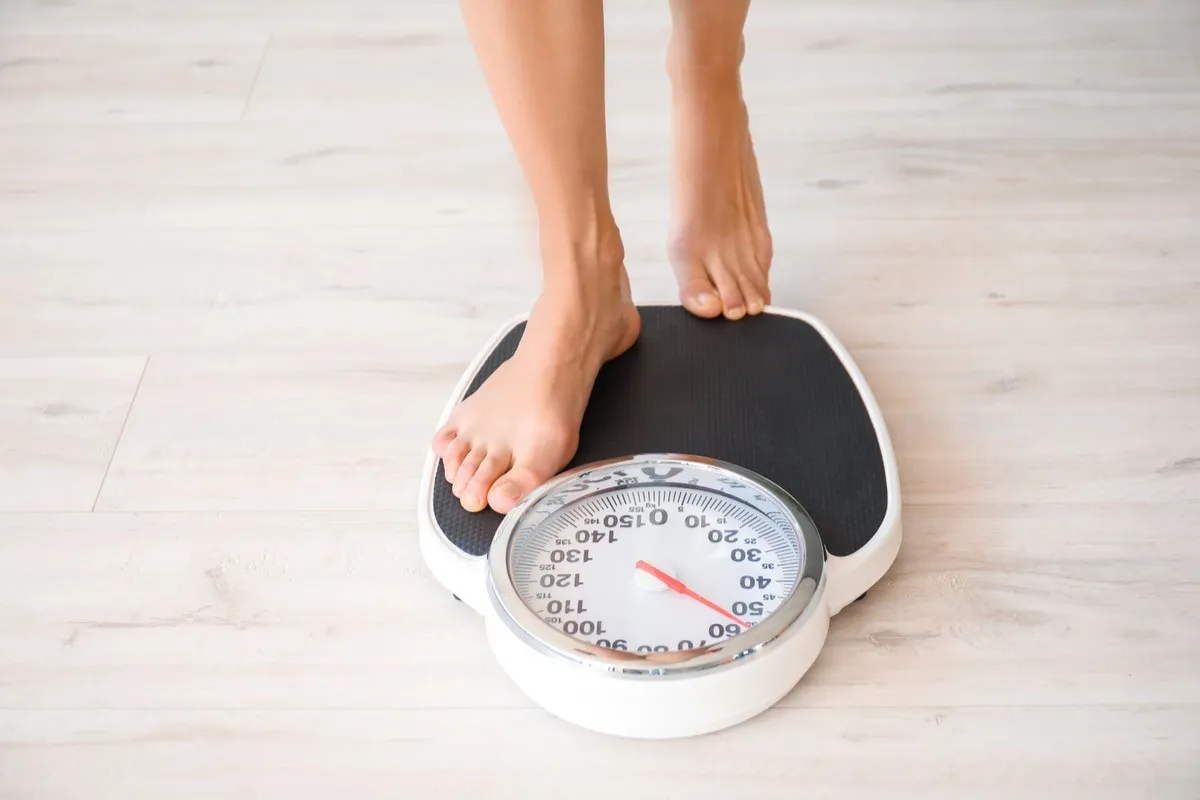I Tried Intermittent Fasting for 30 Days—Here’s What Shocked Me the Most

Counting calories, reading labels, and avoiding certain foods are common ways to diet, but there is another weight-loss method people are turning to: intermittent fasting (IF). While many diets focus on what you can and can’t eat, intermittent fasting is all about when you can.
You restrict what time of day you eat and how many hours between meals, and it’s a wellness trend that continues to generate buzz.
A-list celebrities like Jennifer Aniston, Terry Crews, Scarlet Johansson, and Mark Wahlberg have all talked about the benefits of fasting, and experts agree that it can be effective. According to nutritionist and ACE Certified Trainer Mary Sabat MS, RDN, LD, “Intermittent fasting has been supported by scientific studies as a viable approach for weight loss and improving metabolic health.” She adds, “It can lead to a reduction in calorie intake and promote weight loss, primarily by enhancing fat burning and increasing insulin sensitivity. Intermittent fasting has also shown potential benefits for brain health, longevity, and cellular repair, although further research is needed in these areas.”
However, the popular weight loss craze has a few drawbacks. Adhering to strict fasting windows can be challenging for some. There could also be mild side effects such as weakness, headaches, insomnia, dizziness, and nausea, per the National Library of Medicine. In addition, IF isn’t for everyone, and it’s always recommended to consult a healthcare professional first before
“It can be especially harmful for people who have diabetes, gastroesophageal reflux disease (GERD), as well as people with a history of disordered eating. It is not recommended during pregnancy or if someone is breast-feeding,” Alyssa Smolen, MS, RDN, says. “This is because during these stages of life, individuals need a lot of calories to support their own bodily functions, and refraining from eating can make symptoms worse.”
Best Life spoke with people who tried intermittent fasting, and here’s what surprised them the most.
RELATED: What Is Intermittent Fasting?
Quickly Adapted

Looking to improve his overall health, Alex Foxman, MD, FACP, DABOM, Medical Director Achieve Health and Weight Loss, tried intermittent fasting to boost energy levels and lose weight. But that’s not all. “As a physician, I like to personally explore different approaches that could potentially benefit my patients as well,” he says.
His typical schedule included an eight-hour eating window, usually between 12 p.m. and 8 p.m. On weekends, Dr. Foxman was more flexible and took GLP-1/GIP medications simultaneously to help with his weight loss goals. “What surprised me the most was how quickly my body adapted to fasting once I got past the initial week or two,” he explains. “I expected constant hunger to be an ongoing struggle, but it wasn’t as difficult as anticipated. While the medications certainly made this transition easier, it was fascinating to see how my body adjusted even without them.”
It Was Easy

To kick start IF, clinical psychologist Nancy B. Irwin, PsyD, C.Ht., gave up having cream in her morning coffee but shared that it was a “small price to pay.” Dr. Irwin started the trend after seeing friends drop weight and was surprised by “how easy it would be.” She says, “I have an enormous appetite by nature and can still have all I want. I’m really not hungry in the mornings anyway, so it’s a very easy way of life.” As a result of IF, Dr. Irwin lost 13 pounds and continued intermittent fasting as a daily routine.
Improved Diet

In eight months, Danielle McWilliams, Executive Vice President, lost 20 pounds doing IF. She also changed her eating habits with the help of fasting.
McWilliams would try to fast until 2 PM and shared, “I found that if I waited that long, I could eat one nice meal and not be super hungry for dinner. I allowed myself to have coffee in the morning and a small meal (sometimes even ice cream) in the evening but tried to avoid eating past 8 PM.”
She adds, “What surprised me the most is how good I felt. It curbed my appetite and helped me make better choices. I still ate food that I enjoyed, but I was no longer craving snacks or unhealthy foods.”
Adjusting to Not Eating Breakfast

Fasting can be very effective and beneficial depending on your health goals, but it can be jarring initially. “The biggest challenge for me was adjusting to the mental shift of not eating first thing in the morning,” Sam Tejada, Founder of Liquivida and author of How To Win In Modern Wellness, explains. “Initially, I had to overcome the habit of reaching for breakfast and coffee as soon as I woke up. There’s a social and cultural norm around breakfast that we often don’t even question, so reframing that took some effort.”
RELATED: The Habit That Helps You Lose Belly Fat.
However, Tejada’s Discipline and Commitment Paid Off

“Within a couple of weeks, the hunger pangs in the morning were gone, and I felt more alert and clear-headed during my fast,” he says. “Fasting actually became something I looked forward to because it gave me a sense of structure and discipline that’s deeply rewarding.” He adds, “I was most surprised by how quickly my body adapted.”
Felt Normal to Fast

To help keep up with his fitness goals, Matt Schmidt, CEO of Diabetes Life Solutions, did IF. “I was shocked how quickly my body adjusted to my feeding cycle after about two weeks,” he says. “By about the 3rd week, it felt almost normal to fast,” he revealed. “This result isn’t typical for everyone, but I was thrilled at how I was able to adapt to this fasting.” He was also excited by the results.
Schmidt lost 8-10 pounds and switched up his eating habits.
“I’m a fairly fit person, so dropping a bunch of weight was not what I was looking for,” he says. “Rather, I wished to clean up my diet, and lead to lean muscle gain and be healthier overall.”
Tips for Intermittent Fasting

Thinking about trying IF? Here are tips on getting started and making it through the first few days from people who have tried the diet.
–Drink water. Stay hydrated—it’s essential,” says Tejada.
–Meal prep. “Planning my meals in advance to avoid scrambling for food when it was time to break the fast really helped me make healthier choices,” Dr. Foxman shared.
–Stay distracted. “If you’re focused on tasks, you’re less likely to think about food,” explains Tejada.
-Do light exercise. “Going for a walk, helped distract me and made the fasting period pass more quickly,” says Dr. Foxman.
–Eat well. “Make sure your eating window includes nutritious, balanced meals to fuel your next fast,” according to Tejada. “Intermittent fasting works best when paired with nutrient-dense food that keeps your body fueled and ready.”